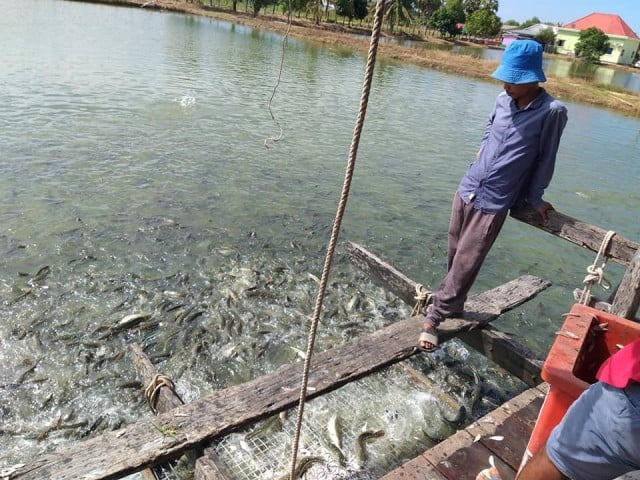Philippines Summons Chinese Envoy over Maritime Confrontations

- By Agence France-Presse (AFP)
- December 11, 2023 3:05 PM
Manila, Philippines -- The Philippines said it had summoned China's envoy on Monday and flagged the possibility of expelling him following the most tense confrontations between the countries' vessels in years at flashpoint reefs in the disputed South China Sea.
Videos released by the Philippine Coast Guard showed Chinese ships blasting water cannon at Philippine boats during two separate resupply missions to fishermen at Scarborough Shoal and a tiny garrison at Second Thomas Shoal on Saturday and Sunday.
There was also a collision between Philippine and Chinese boats at Second Thomas Shoal, where a handful of Filipino troops are stationed on a grounded warship, with both countries trading blame.
Diplomatic protests had been filed and "the Chinese ambassador has also been summoned", foreign ministry spokeswoman Teresita Daza told a news conference on Monday.
Daza said declaring China's ambassador Huang Xilian "persona non grata" in the Philippines was also "something that has to be seriously considered".
AFP correspondents outside the foreign ministry in Manila saw a Chinese-flagged SUV enter the compound at 0715 GMT.
China's ramming and water cannoning of Filipino boats, as well as the use of a long-range acoustic device, was a "serious escalation" of their tactics, Jonathan Malaya, assistant director general of the National Security Council, told reporters.
But China's foreign ministry said that moves by its coast guard against the Philippine vessels were "professional" and "restrained", and it had "lodged stern representations" with Manila.
The China Coast Guard earlier accused one of the Philippine supply boats of deliberately hitting its vessel despite "multiple stern warnings".
China claims almost the entire South China Sea and has ignored an international tribunal ruling that its assertions have no legal basis.
It deploys boats to patrol the busy waterway and has built artificial islands that it has militarised to reinforce its claims.
- 'Dangerous and destabilizing' -
The US State Department called on China on Sunday to halt its "dangerous and destabilizing" actions in the sea, while foreign diplomats in Manila also criticised China's behaviour.
The weekend confrontations were the most intense between Philippine and Chinese vessels in years, analysts said, as the countries seek to assert their competing maritime territorial claims.
"I expect that this will become even more frequent and persistent," said Jay Batongbacal, director of the University of the Philippines' Institute for Maritime Affairs and Law of the Sea.
Song Zhongping, an analyst and former officer in the Chinese military, said US support for the Philippines was making Manila feel "emboldened to provoke China", which was exacerbating tensions.
China's actions were "not only designed to intimidate and coerce the Philippines into accepting China's territorial claims, but more likely to test the US resolve", said Michael Raska, assistant professor and military expert at Singapore's Nanyang Technological University.
China seized Scarborough Shoal from the Philippines in 2012 following a tense standoff, while the Philippine Navy deliberately grounded a World War II-era navy ship on Second Thomas Shoal in 1999 to check China's advance.
A convoy of civilian boats planning to deliver provisions to Filipino fishermen and troops in the South China Sea aborted their trip on Sunday after being shadowed by Chinese vessels, the organisers said.
They said in an update on Monday one of the supply boats had pressed on and arrived at the Philippine-held Nanshan Island, where it unloaded its cargo.
Relations between Manila and Beijing have frayed under President Ferdinand Marcos, who has sought to improve ties with traditional ally Washington and deepen defence cooperation in the region, while also pushing back against Chinese actions in the South China Sea.
That contrasts with the approach of former president Rodrigo Duterte, who set aside maritime disputes with Beijing in exchange for promises of Chinese investment.
Marcos said in a statement on Sunday the Philippines remained "undeterred" following the latest incidents.
"No one but the Philippines has a legitimate right or legal basis to operate anywhere in the West Philippine Sea," Marcos said, using Manila's term for the South China Sea waters to the immediate west of the Philippines.
© Agence France-Presse















